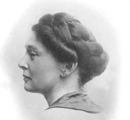English, Department of

University of Nebraska Studies in Language, Literature, and Criticism
Date of this Version
January 1938
Abstract
In these pages the emphasis will be placed not upon Walt Whitman's literary theory, but upon the theory which underlay his criticism of other writers, both ancient and modern. Whitman made ample statement of his literary theory, and it has been expounded by almost everyone who has had anything to say of the poet himself, of his Leaves of Grass, or of his prose writings. To ascertain a theory upon which Whitman based his literary criticism one must examine his chaotic prose and scrappily recorded talk with an eye to selection and organization. One must with purpose arrange the materials at hand. In such an attempt it is necessary to venture into strange territories: to examine judgments originally written upon scraps of wallpaper or in the pages of books and magazines; to appraise almost illiterate, garbled passages; to come with delight upon bright and flashing phrases; to wander bewildered between sharp contradictions; to encounter wonderfully shrewd observations by the side of naive speculations.
When the difficulties of organizing it have been overcome, Whitman's literary criticism stands as a body of work peculiarly revealing. It indicates much which is important for understanding Whitman and his Leaves of Grass; and it is in itself thoroughly interesting; sometimes amusing; sometimes profound. Whitman says that Agnes Repplier "tries for smartness at all hazards," that Henry James "is feathers to me," that Matthew Arnold "is porcelain, chinaware, hangings," that John Keats "is sweet--oh! very sweet-all sweetness," that John Milton soars "with an unwieldly motion," that Shakespeare "often falls down in his own wreckage." Whether accurate or not, Whitman's opinions on literature are seldom dull. And they are usually worth listening to. Whitman was a careful critic, in that he sought certain literary qualities in all he read, never hesitating to be stern in his disapproval if those qualities were found lacking. Moreover he sought democratic ideas in all he read, just as he sought to instill them into all he wrote. Thus, Whitman's criticism of literature was based upon a double standard: the search for artistic excellence and the search for democratic thought.


Comments
Published as University of Nebraska Studies in Language, Literature, and Criticism, Number 16. Lincoln, Nebraska, 1938.